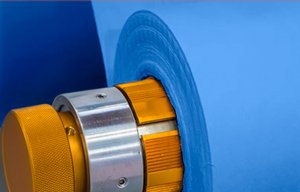
Berry scheme for customer waste
Brands looking to expand and modernise recycling infrastructure.

13th September 2021
Innovation in Textiles
|
Evansville, IN, USA
Leading nonwovens and plastics manufacturer Berry Global, headquartered in Evansville, Indiana, has joined The Recycling Partnership’s Polypropylene Recycling Coalition, which is aimed at increasing recycling access for polypropylene (PP).
Berry’s goal is enhancing recycling infrastructure as part of the quest toward a circular economy. As a cross-industry effort, Berry joins steering committee members Keurig Dr Pepper, Braskem, NextGen Consortium, and the Walmart Foundation, along with other members of the PP value chain.
To date the coalition has:
-Contributed $4.2 million in grants to 13 recycling facilities to positively impact nearly 15 million US residents.
-Given financial awards across the United States to increase polypropylene recovery by 13 million pounds annually.
-Supported targeted consumer information efforts and infrastructure improvements.
“By expanding and modernising recycling infrastructure, we will capture the economic value that is currently being lost and supply the recycled content necessary to meet commitments,” said Robert Flores, vice president of sustainability at Berry, and also a newly elected member of The Recycling Partnership’s board of directors. “This is critical to achieving a circular economy and giving natural resources multiple lives,”
Berry is strategically targeting both investments and partnerships to foster PP recycling infrastructure. An example is a recent collaboration with Evansville, Indiana-based materials recovery facility AMP Robotics, to purchase and install a new Cortex high-speed robotics system to sort PP. Recovered material will be used back in Berry’s products, but more importantly, learnings from the robot will be evaluated and shared to enhance and promote PP recycling.
PP is a widely used plastic for nonwovens, as well as food and other non-food applications. Versatile in nature, the material offers brands an affordable and safe solution for these applications. Not only does the material offer high levels of utility, Berry believes it to have the lowest carbon footprint when compared to other substrates. In addition, brand owners benefit from PP’s durability and contact clarity for use in applications such as drink cups.

Business intelligence for the fibre, textiles and apparel industries: technologies, innovations, markets, investments, trade policy, sourcing, strategy...
Find out more